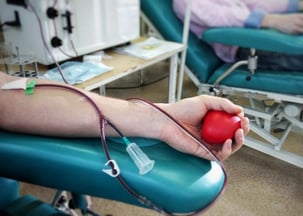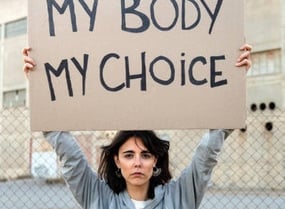Help keep this website stay online by supporting us in ways you can!

YOUNG BLOOD TRANSFUSION
V. George
3/3/20243 min read
Imagine a scenario where a woman or surrogate mother can legally terminate an 8-month-old fetus solely to provide a blood transfusion to rejuvenate an aged person. This possibility presents a new frontier, wherein a woman's body becomes a transactional vessel, transferring life blood from a developing fetus to make an older individual appear younger, healthier, and revitalized. This raises uncomfortable questions about the exploitation and commodification of a woman's body and her rights."
Bodily Autonomy vs. Rights of the Unborn:
The act of terminating a pregnancy at such a late stage challenges the ethical boundaries of bodily autonomy, pushing them to their limits. Simultaneously, it raises concerns about the rights and potential of an 8-month-old fetus, igniting fierce debates about its moral status and the level of protection it deserves. This commodification of a woman's body and reproduction, however controversial, could become the single most significant factor hindering abortion rights."
Commercialization of Reproduction:
Whether through underground markets or legalized avenues, the fetus could transform into a mere tool to fulfill someone else's desire for eternal youth. This could turn a woman's pregnancy into a transactional process, raising ethical concerns akin to exploiting women's bodies for the benefit of others. It echoes the normalization of prostitution, raising similar questions about morality."
Value of Human Life:
The practice of 'young blood transfusions' subtly assigns subjective value to human life, prioritizing one's health and well-being over another's very existence. This challenges the fundamental sanctity of life, potentially blurring the line between ethical medical procedures and morally questionable interventions.
Social Implications and Precedent:
The acceptance of such actions by society could pave the way for a slippery slope, where individuals in positions of power feel entitled to manipulate life for their benefit. This sets a hazardous precedent, one that could have far-reaching consequences for our collective understanding of what it means to be human."
This dilemma demands introspection, prompting a critical reevaluation of our societal values, ethical norms, and the moral frameworks guiding our choices in the face of advancing biomedical possibilities. The delicate balance between individual freedom and moral responsibility must be vigilantly guarded to preserve the inherent dignity and sanctity of life for generations to come. Let us not allow the pursuit of personal gain to eclipse the essence of what makes life precious."




This discussion doesn't concern mere hypotheticals; it plunges headfirst into the intricate crossroads where reproductive rights, bodily autonomy, and the value of life collide. It unveils a hidden dimension of human freedom that forces us to confront a chilling reality."







